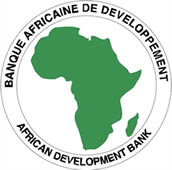 Private Enterprise Federation
Advocacy, Business Development and Market Access
Private Enterprise Federation
Advocacy, Business Development and Market Access
Advocacy, Business Development and Market Access
The Private Enterprise Federation
The organization of business activity in Ghana takes several forms, including unincorporated businesses, incorporated businesses, non-Ghanaian companies registered in Ghana as external companies and state-owned enterprises created by statutes.
The chart below will help you identify your strengths and weaknesses and will give you a better idea of whether you’re ready to become a small business owner.
WE members of the Private Enterprise Foundation made up of the Association of Ghana industries (AGI), Ghana National Chamber of Commerce and Industries (GNCCI), Ghana Association of Bankers (GAB), Federation of Ghanaian Exporters (FAGE), Ghana Employers Association (GEA), Ghana Chamber of Mines (GCM) and others, consisting of major identifiable private sector associations and entities, representing their member companies and professional bodies including Insurance companies, building and civil engineering firms, contactors, manufacturers, consultancy service providers, hospitality industries, importers and exporters, etc.;
This study is part of a number of studies being conducted by the Private Enterprise Foundation (PEF) under the Private Sector Promotion Programme (PSPP) funded by the United Nations Development Programme (UNDP). The Programme is aimed at strengthening the technical and institutional capacity of the private sector in Ghana to undertake productive investments in order to accelerate the growth of the sector.
Among the strategic objectives of the Private Enterprise Foundation (PEF) IS the policy to maintain a close relationship with private sector business organizations and to be the lead organization that would play an advocacy role in influencing policies and regulations of government. The Foundation would also relate to other internal and external bodies for the creation of an enabling economic environment that would ensure that private business in Ghana could increasingly contribute to national development.
Ghana is endowed with substantial mineral resources and has a well-established mining sector, which has grown considerably in recent years to represent an important pillar of the Ghanaian economy.
The minerals extractive industry currently has thirteen large-scale mining companies and, over three hundred registered small scale mining groups and ninety mine support service companies.
Over the last decade, Ghana's real GDP has grown steadily at 4 per cent per annum on average. Sectoral growth rates in agriculture, industry and services have also remained reasonably positive. However, the macro-economic performance has not facilitated the needed structural transformation of the economy ; consequently, the economy continues to depend on primary commodity exports. At about 36 per cent of GDP, the contribution of agriculture has changed little since 1961 when it reached 35 per cent. Primary commodities account for 61 . 2 per cent of exports on average compared to II per cent for manufactured goods (1997-2001). Ghana's external debt grew from 41 .4 per cent of GDP to 132.2 per cent over the period 1983-2000, revealing significant levels of dependence on external financial flows.
The Private Enterprise Foundation (PEF) is an umbrella private sector body devoted to the orderly and healthy development of the private sector in Ghana through ad roach and promotion. In the discharge of this responsibility PEF is involved in policy dialogue to ensure that policies favor the smooth growth of the private sector. In February 2000, PEF organized a workshop on the theme "Building Partnership with Parliamentary Committees - A Private Sector/Legislature Network on Policy and Laws for Effective Governance" for members of 3 relevant committees of parliament with a view to striking the necessary relationship and acquaintances to facilitate its advocacy role. Later events however did not allow for the full implementation of the recommendations of that workshop.
The Ghanaian private sector has been designated as the engine of growth in the country's new development strategy. This new role of the private sector is no doubt a challenging one. This is because the private sector is expected to play roles hitherto the preserve of the state.
Ghana Vision 2020: A Middle Income Country by the Year 2020
Ghana seeks to become a middle income country by the year 2020. This ambitious objective, embodied in the Government's Vision 2020, requires an average annual growth rate of 8% from 1995-2020. Maintaining the present policy framework, and thus its historical growth rate, will only achieve Half of what is required--Ghana must work twice as hard. The accelerated growth needed to attain the Objective of Vision 2020 can only come from a radical and sustained shift in the policy framework, to One that effectively implements an outward-oriented growth strategy. To achieve the required growth rate, exports must grow at least 10% per year--doubling every seven years. But traditional exports, currently accounting for 85% of total exports, are projected to grow at most by 5% per annum. This means that non-traditional exports must be the new engine of growth, growing at more than 15% per year from now to 2020. Export growth rates of this magnitude will result only if the entire economy is Focused on international competitiveness.



































